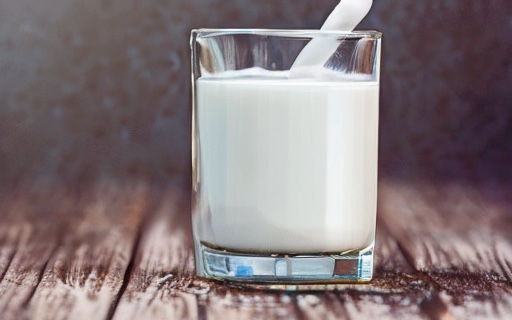Internet Asks: “Milk pH Level”
Milk is a staple beverage enjoyed by people of all ages around the world. From being sipped alongside cookies to being poured over cereal, milk has earned its spot in our refrigerators. But have you ever wondered about the pH of milk and how it relates to its taste and composition? In this article, we'll dive into the fascinating world of milk pH, exploring its acidity or alkalinity and its impact on our health.
sponsored links

Understanding the pH Scale
Before we jump into the pH of milk, let's take a moment to understand the pH scale. It's like a spectrum that measures acidity and alkalinity, ranging from 0 to 14. A pH of 7 is considered neutral, while values below 7 indicate acidity and values above 7 indicate alkalinity. The scale is logarithmic, meaning each unit represents a tenfold change in acidity or alkalinity.
Is Milk Acidic or Alkaline?
So, is milk acidic or alkaline? The pH of milk is slightly acidic, typically ranging from 6.4 to 6.8. This acidity level is due to the presence of lactic acid, which is produced by bacteria during the fermentation process. Despite being slightly acidic, milk's acidity is mild and doesn't affect its overall taste or nutritional value significantly. For context, many everyday foods like citrus fruits and tomatoes are more acidic than milk.
The Composition of Milk
To understand the pH of milk, we must first understand its composition. Milk is a complex mixture of proteins, carbohydrates, fats, vitamins, minerals, and water. It contains essential nutrients like calcium, vitamin D, and potassium, which are crucial for bone health and overall well-being. The balance of these components, along with the presence of lactic acid, contributes to the slightly acidic nature of milk.
Milk pH and Health
When it comes to our health, the pH of milk has a minimal direct impact. The mild acidity doesn't pose any significant concerns for most individuals. However, for those with specific health conditions, such as acid reflux or GERD (gastroesophageal reflux disease), the acidity of milk might contribute to discomfort or symptoms. In such cases, it's best to consult a healthcare professional for guidance on managing dietary choices.
sponsored links
Impact on Taste and Digestion
The mild acidity of milk plays a role in its taste and digestion. The presence of lactic acid helps to develop the flavors we associate with milk, giving it a slightly tangy or creamy taste. This acidity also aids in the digestion of milk proteins. The enzymes in our stomach work more efficiently in an acidic environment, breaking down proteins into smaller, more digestible components. So, the mild acidity of milk actually supports the digestion process and allows us to reap the nutritional benefits it offers.
Milk Alternatives: Exploring pH Beyond Dairy
For those who prefer or require alternatives to traditional dairy milk, there is a wide array of milk substitutes available. Plant-based milk alternatives, such as almond milk, soy milk, and oat milk, have gained popularity in recent years.
pH Levels of Milk Alternatives
- Almond Milk: Typically slightly alkaline, with a pH ranging from 7.2 to 7.6.
- Soy Milk: Usually closer to neutral, with a pH hovering around 6.8 to 7.2.
- Oat Milk: Also generally close to neutral, with a pH similar to soy milk.
While these alternatives may differ in pH from traditional dairy milk, they can still provide essential nutrients and be enjoyed as part of a balanced diet. Consider factors such as taste preferences, nutritional content, and any specific dietary needs when selecting a milk alternative.
Conclusion
In conclusion, the pH of milk is slightly acidic, ranging from 6.4 to 6.8, due to the presence of lactic acid. However, this mild acidity does not significantly affect the taste or nutritional value of milk. It is generally well-tolerated by most individuals, but those with specific health conditions like acid reflux or GERD should seek guidance from healthcare professionals regarding their dietary choices. The acidity of milk contributes to its flavor and aids in the digestion of proteins.
Additionally, for those who prefer milk alternatives, such as almond milk, soy milk, or oat milk, it's important to consider their pH levels, which can vary from slightly alkaline to neutral. By understanding the pH levels of various milk options, individuals can make informed choices that suit their taste preferences, dietary needs, and overall well-being. As always if you have any concerns or questions regarding the impact of milk pH on your health, it is advisable to consult a healthcare professional.
sponsored links
References
-
- 1. U.S. Food and Drug Administration: Approximate pH of Foods and Food Products. (2007). https://www.healthycanning.com/wp-content/uploads/pH-FDAapproximatepHoffoodslacf-phs.pdf
- 2. Harvard University. Milk. https://www.hsph.harvard.edu/nutritionsource/milk/
- 3. Johns Hopkins Medicine. GERD Diet: Foodsd That Help with Acid Reflux(Hearthburn). https://www.hopkinsmedicine.org/health/wellness-and-prevention/gerd-diet-foods-that-help-with-acid-reflux-heartburn
- 4. Schwendel, B. H., Wester, T. J., Morel, P. C., Tavendale, M. H., Deadman, C., Shadbolt, N. M., & Otter, D. E. (2015). Invited review: Organic and conventionally produced milk—An evaluation of factors influencing milk composition. Journal of Dairy Science, 98(2), 721-746. https://doi.org/10.3168/jds.2014-8389
- 5. indmark Månsson, H., & Fondén, R. (2008). Composition of Swedish dairy milk. International Dairy Journal, 18(7), 637-647. https://doi.org/10.1016/j.idairyj.2007.12.002
Updated June 2024 : To stay informed with the latest updates, keep checking back on our blog for more detailed and current information.
People are also reading...
🌯 Burritos Calories?
🫐 Are Blueberries Acidic?
🥭 Are Mangoes Acidic?
Ready to level-up?
Create meal plans 10x faster, follow up with your clients through our mobile app, and never struggle with meal planning or recipe management again.